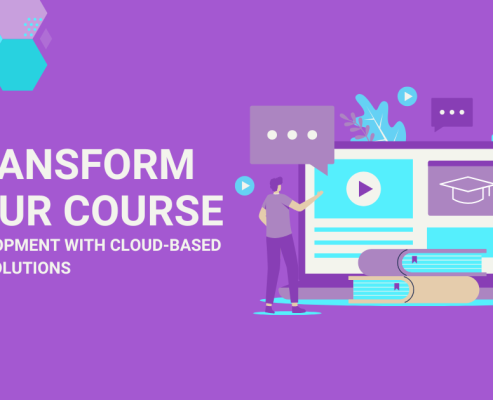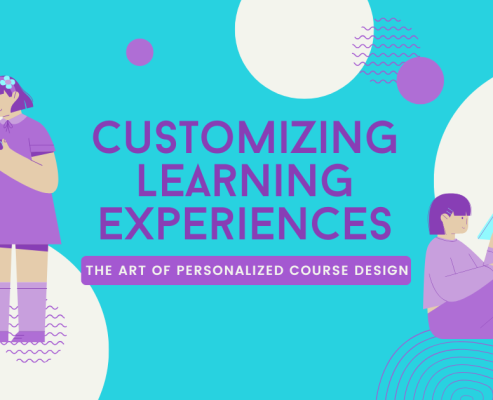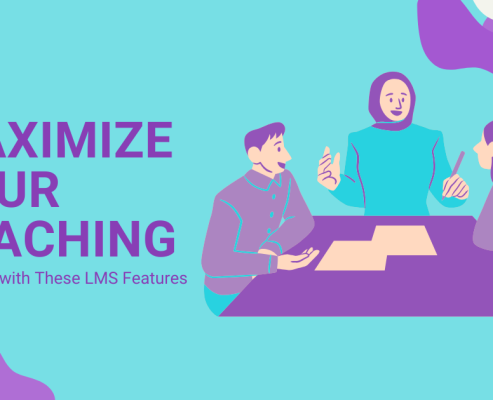In today’s rapidly evolving business landscape, Learning Management Systems (LMS) are indispensable tools for corporate training and professional development. Over the next decade, LMS technology is poised to undergo transformative changes, driven by advancements in artificial intelligence (AI), immersive learning experiences, and data analytics.
- Artificial Intelligence and Personalized Learning
Artificial intelligence is set to revolutionize LMS by enabling highly personalized learning experiences. AI algorithms can analyze individual learner data to tailor course content, recommend resources, and provide real-time feedback. This level of personalization will enhance learner engagement and improve outcomes by ensuring that each employee receives training that aligns with their specific needs and learning styles.
- Immersive Learning with AR and VR
Augmented Reality (AR) and Virtual Reality (VR) technologies are expected to play a significant role in the future of LMS. These immersive technologies will create realistic, hands-on training environments that are particularly valuable for complex or hazardous tasks. For instance, VR can simulate machinery operations or emergency procedures, allowing employees to practice and hone their skills in a safe, controlled setting. This approach not only boosts learner engagement but also enhances knowledge retention.
- Microlearning and Mobile Learning
The demand for microlearning and mobile learning will continue to rise. Microlearning delivers content in small, easily digestible units, making it ideal for busy professionals who need to fit learning into their hectic schedules. Mobile learning ensures that training is accessible anytime, anywhere, on any device. This flexibility is crucial for businesses with remote or globally dispersed teams, as it facilitates continuous learning and development without geographical constraints.
- Advanced Data Analytics and Learning Insights
The integration of advanced data analytics within LMS will provide deeper insights into learner behavior and training effectiveness. Businesses will be able to track progress, identify skill gaps, and measure the ROI of training programs with greater precision. Predictive analytics will also play a crucial role, enabling organizations to forecast future training needs and proactively address potential challenges. This data-driven approach will ensure that training initiatives are strategic and impactful.
- Social and Collaborative Learning
The future of LMS will embrace social and collaborative learning, leveraging the power of community and peer interaction. Social learning platforms will enable employees to share knowledge, discuss topics, and collaborate on projects in real time. This collaborative approach fosters a culture of continuous learning and innovation, as employees can learn from each other’s experiences and expertise. Features like discussion forums, chat rooms, and social media integration will become standard in LMS platforms.
- Integration with Other Business Systems
LMS platforms will increasingly integrate with other business systems such as HR software, performance management tools, and enterprise resource planning (ERP) systems. This seamless integration will provide a holistic view of employee development, linking training outcomes to performance metrics and career progression. Such connectivity ensures that learning and development are aligned with overall business objectives, driving organizational growth and success.
- Focus on Soft Skills and Leadership Training
As the business environment becomes more complex, there will be a growing emphasis on soft skills and leadership training. LMS platforms will offer a diverse range of courses aimed at developing communication, problem-solving, emotional intelligence, and leadership abilities. These skills are essential for building resilient, adaptable teams capable of navigating change and driving innovation.
Conclusion
The future of LMS in business is bright, with technology playing a pivotal role in shaping the next decade of e-learning. By embracing AI, AR, VR, data analytics, and social learning, businesses can create dynamic, personalized, and effective training programs. As LMS platforms continue to evolve, they will not only enhance employee performance but also contribute to the overall success and competitiveness of organizations. Staying ahead of these trends will be crucial for businesses looking to leverage the full potential of e-learning technology.




